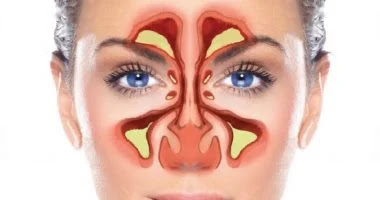Protecting Nasal Sinuses: Measures for Maintaining Nasal Health
The nasal sinuses, also known as the paranasal sinuses, are air-filled cavities in the bones surrounding the nose that are essential for a variety of functions, including humidifying and filtering the air we breathe, enhancing our sense of smell, and providing structural support for the face. However, these sinus cavities are susceptible to infection, inflammation and other disorders that can cause discomfort and affect overall health. In this article, we will discuss the importance of protecting the nasal sinuses and outline measures to maintain nasal health.
The importance of sinus health:
The nasal sinuses play a crucial role in maintaining respiratory health and overall well-being. Some of the key functions of the sinuses include
1_Humidification and filtration: The sinuses help humidify and filter the air we breathe, removing impurities, allergens and foreign particles before they reach the lungs.
2_Enhanced sense of smell: The sinuses contain specialised cells responsible for detecting odours, allowing us to enjoy the sense of smell and taste.
3_Resonance and voice projection: The structure of the nasal sinuses contributes to the resonance of the voice and aids in voice projection and articulation.
4_Facial structure and support: The nasal sinuses provide structural support to the facial bones, contributing to facial symmetry and stability.
Measures to protect the sinuses:
1_Maintain good hygiene: Practicing good hygiene habits can help prevent the spread of infections and reduce the risk of sinus-related illnesses. This includes washing your hands frequently, especially before touching your face, and avoiding close contact with people who are sick.
2_Stay hydrated: Drinking adequate amounts of water throughout the day helps keep the nasal passages moist and facilitates proper drainage of mucus from the sinuses. Aim to drink at least 8-10 glasses of water a day to maintain hydration.
3_Use a humidifier: In dry or arid climates, using a humidifier in the home can help add moisture to the air and prevent the nasal passages from becoming too dry. Be sure to clean humidifiers regularly to prevent the growth of mould and bacteria.
4_Practice nasal irrigation: Nasal irrigation, also known as nasal saline irrigation or nasal douching, involves rinsing the nasal passages with a saline solution to remove mucus, allergens and irritants. This can be done using a neti pot, nasal spray or saline irrigation kit.
5_Avoid allergens and irritants: Minimise exposure to environmental allergens such as pollen, dust mites, pet dander and air pollutants, which can trigger allergic reactions and worsen sinus symptoms. Use allergen-proof covers for pillows and mattresses, and keep indoor spaces clean and well-ventilated.
6_Seek prompt treatment: If you experience symptoms of sinusitis, such as nasal congestion, facial pain, headache or nasal discharge, seek immediate medical attention. Early diagnosis and treatment can help relieve symptoms and prevent complications.
In conclusion, protecting the nasal sinuses is essential for maintaining respiratory health, improving comfort and promoting overall wellbeing. By taking simple preventive measures such as good hygiene, staying hydrated, using humidifiers, practicing nasal irrigation, avoiding allergens and irritants, and seeking timely medical care when needed, individuals can take proactive steps to maintain nasal health and enjoy optimal sinus function. Remember that maintaining nasal health is an important part of a healthy lifestyle and contributes to overall quality of life.

Comments
Post a Comment